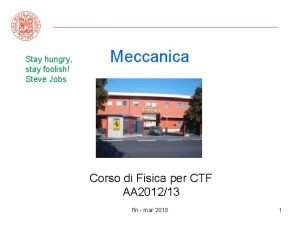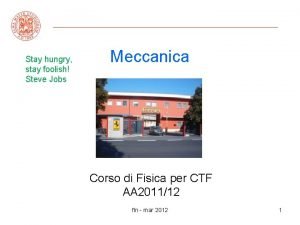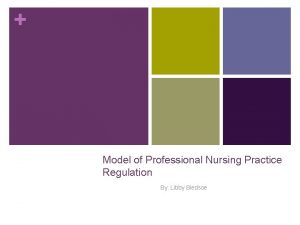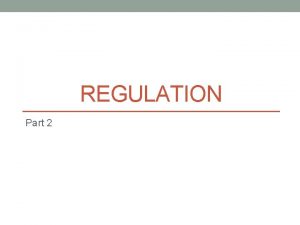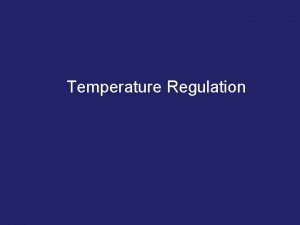Professional Regulation Should I stay or should I









- Slides: 9

Professional Regulation “Should I stay or should I go now? ”

Self-regulation: Why? I. Risk of Harm II. Public Benefit * These are the two guiding principles for Health Providers Regulatory Advisory Committee (HPRAC) * This committee reviews applications for selfregulation

Regulatory College Statutorily charged with protecting the public interest by setting: I. III. IV. Educational requirements Competency profiles and standards of practice Developing a Code of Ethics while ensuring professional competency through quality assurance, promoting interprofessional collaboration, maintaining a public register of members, conducting public outreach, and responding to public complaints Membership is required for all professional practitioners

Are we currently a profession? No… • Clinical Perfusion already has many of the characteristics of a profession except: • Lack a self-governing regulatory body • Protection of the title of “Clinical Perfusionist” • A College will protect that title by preventing unregulated, unqualified or unlicensed individuals from adopting the title Perfusionist, thus protecting the public interest.

Why do We need Self-regulation? • Employers are setting the standards • One coherent voice for inter-professional collaboration (CPSO, ONA) • Validation of our credentials, OSCP and CSCP • Liability coverage

Is Self-regulation Guaranteed? • No • The final decision of whether we can self-regulate is up to the Minister of Health (Deputy) upon the recommendation of the HPRAC • Physician Assistants, Paramedic and Sonography experience

Process • Mandate from the membership and OSCP board • Form a small dedicated working group. Membership consisting of 3 individuals (passionate) and the President of the OSCP • Report progress / options available to membership via the OSCP – quarterly • Ultimately prepare submission to HPRAC for review

Summation RHPA – we are not in compliance Doing nothing is not an option Identify our best option – Can we go it alone? Joining an existing group etc. Get help from knowledgeable established Colleges, legal, Ministry of Health Actively engage colleagues, OSCP and CSCP

Which Do you Prefer? • RCP – Registered Clinical Perfusionist • CP – Clinical Perfusionist • CCPO – College of Clinical Perfusion of Ontario • CPO – College of Perfusion of Ontario


